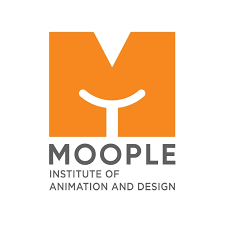Visual Effects (VFX) has become an integral part of the modern entertainment industry, transforming how we experience movies, television shows, video games, and more. VFX involves creating digital elements that enhance or replace live-action scenes, bringing imagination to life. Aspiring artists often seek education and training from specialized VFX schools and courses to enter this dynamic field.
Why VFX Education Matters?
VFX courses play a pivotal role in shaping the dynamic realm of visual effects. They provide aspiring artists with essential skills and techniques, fostering innovation. In today’s competitive industry, comprehensive VFX education ensures professionals meet industry demands. Moreover, such courses cultivate creativity and networking, nurturing well-rounded talents.
- The Evolution of Visual Effects: Visual effects have evolved from practical effects using physical models to computer-generated imagery (CGI) that can seamlessly blend with live-action footage. As the demand for increasingly complex and realistic effects grew, so did the need for skilled VFX artists.
- VFX Education: Nurturing Creativity and Skills: VFX schools play a crucial role in nurturing the creative talents of aspiring artists. Through comprehensive coursework and hands-on projects, students learn the technical aspects of creating stunning visual effects while honing their artistic instincts.
Benefits of Attending a VFX School
Attending VFX schools offers numerous advantages for aspiring visual effects artists. These specialized institutions provide comprehensive training in cutting-edge techniques, fostering creativity and technical expertise. Through hands-on projects, students gain practical experience essential for the industry. Furthermore, networking opportunities with professionals enhance career prospects.
- Structured Learning Environment: VFX schools provide a structured curriculum that guides students from foundational concepts to advanced techniques. This ensures a comprehensive understanding of the field.
- Access to Industry-Standard Tools and Software: VFX course in Kolkata offer access to the latest software and tools used in the industry. This exposure prepares students for real-world challenges and expectations.
- Expert Guidance and Mentorship: Experienced professionals often teach at VFX schools, providing students with insights, industry connections, and mentorship that can prove invaluable for their careers.
- Collaborative Learning: Working in a creative environment with peers with similar passions fosters collaboration and exchanging ideas, enhancing the learning experience.
Key Elements of VFX Courses
VFX courses offer essential skills for modern visual effects creation. Covering techniques, software, and artistic concepts, these courses prepare students for dynamic careers. From foundational principles to advanced applications, VFX courses cultivate proficiency. Transitioning theory into practice, students gain hands-on experience vital for industry success.
- Foundations of VFX: VFX courses start by building a strong foundation, covering topics such as principles of animation, digital modeling, and texturing.
- Specialization Tracks: As students progress, they can choose specialization tracks that align with their interests, such as character animation, visual storytelling, or special effects.
- Hands-on Projects: Practical projects allow students to apply theoretical knowledge, encouraging problem-solving and creativity. These projects also form a strong portfolio for future job applications.
- Industry Simulations: Some VFX courses simulate real-world industry scenarios, preparing students for VFX production’s fast-paced and demanding nature.
Transitioning from VFX School to Industry
Transitioning from VFX School to Industry involves navigating critical steps. After VFX school, graduates enter the dynamic world of visual effects. Equipped with skills learned in VFX school, professionals embark on their creative journey. Transition demands adaptability, networking, and showcasing VFX school-honed talents.
- Internships and Industry Exposure: Many VFX schools have partnerships with studios, facilitating internships that provide students with invaluable industry exposure and a chance to work on actual projects.
- Building a Strong Portfolio: A diverse and impressive portfolio showcasing various skills is essential for securing a job in the competitive VFX industry.
- Networking and Industry Events: VFX schools often organize networking events, workshops, and seminars, connecting students with professionals and keeping them updated on industry trends.
Current Trends in VFX Education
Recent trends in VFX education highlight dynamic shifts within VFX schools. Emerging technologies revolutionize VFX curricula, fostering practical skill acquisition. Furthermore, industry collaboration enhances the real-world readiness of VFX school graduates. Consequently, staying updated with these trends becomes crucial for aspiring VFX professionals.
- Virtual Reality (VR) and Augmented Reality (AR): With the rise of VR and AR technologies, some VFX schools are incorporating these into their curriculum to prepare students for the future of immersive experiences.
- Remote Learning and Online Courses: The accessibility of online learning has made VFX education more attainable for a global audience, allowing students to learn from industry experts regardless of location.
Attending a specialized VFX school and enrolling in VFX courses in the ever-evolving landscape of visual effects can provide aspiring artists with the skills, knowledge, and industry connections needed to thrive. From mastering the foundations to exploring advanced techniques and staying updated with industry trends, VFX education sets the stage for a successful and fulfilling career in visual effects.

